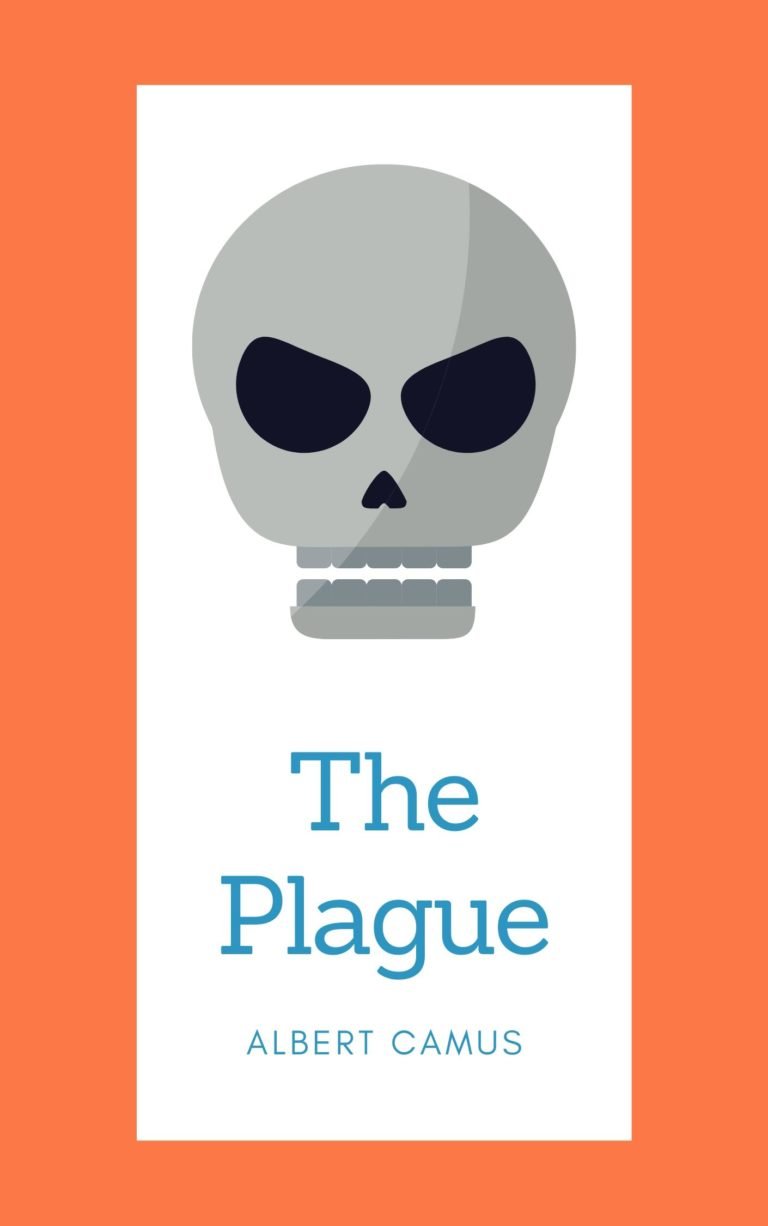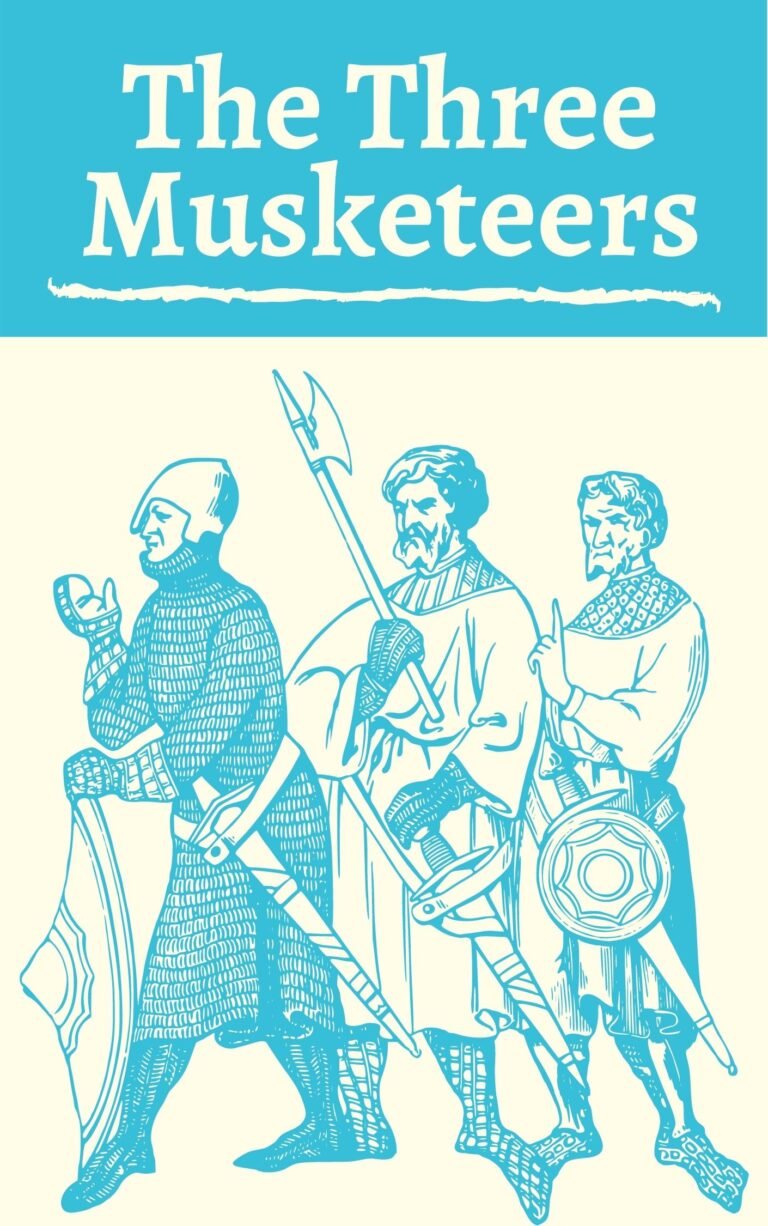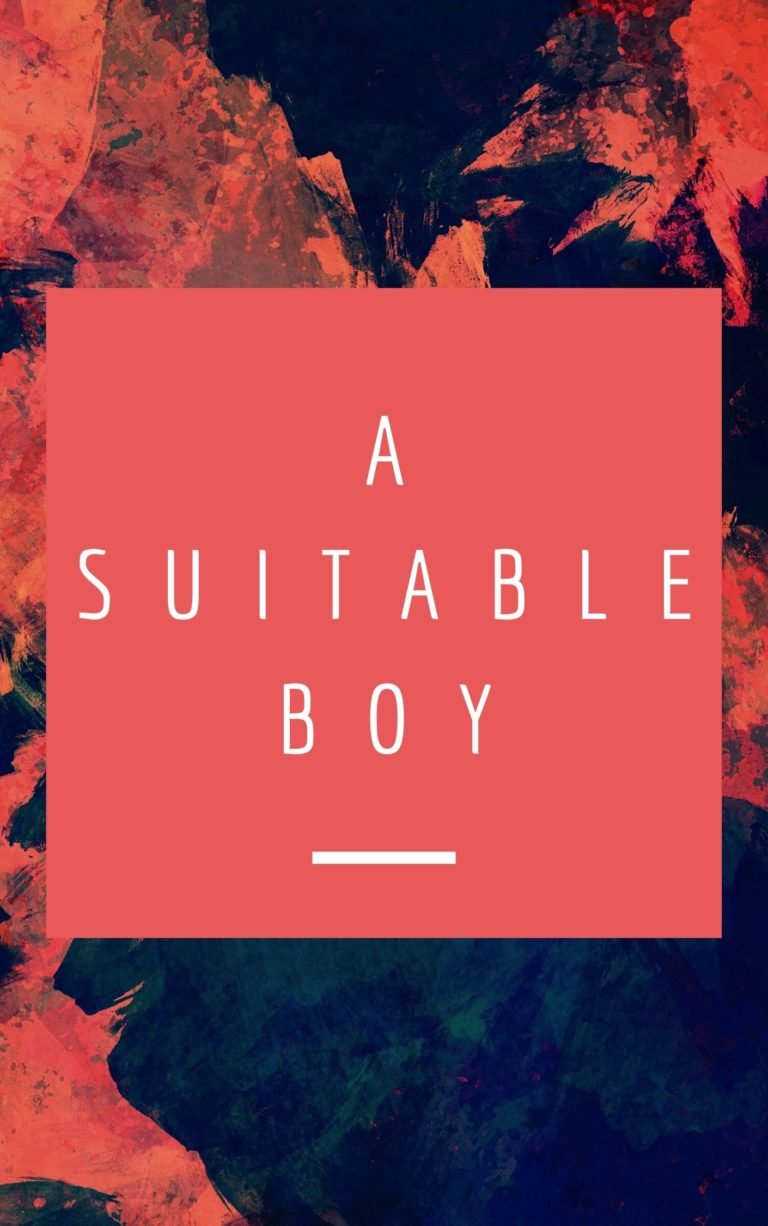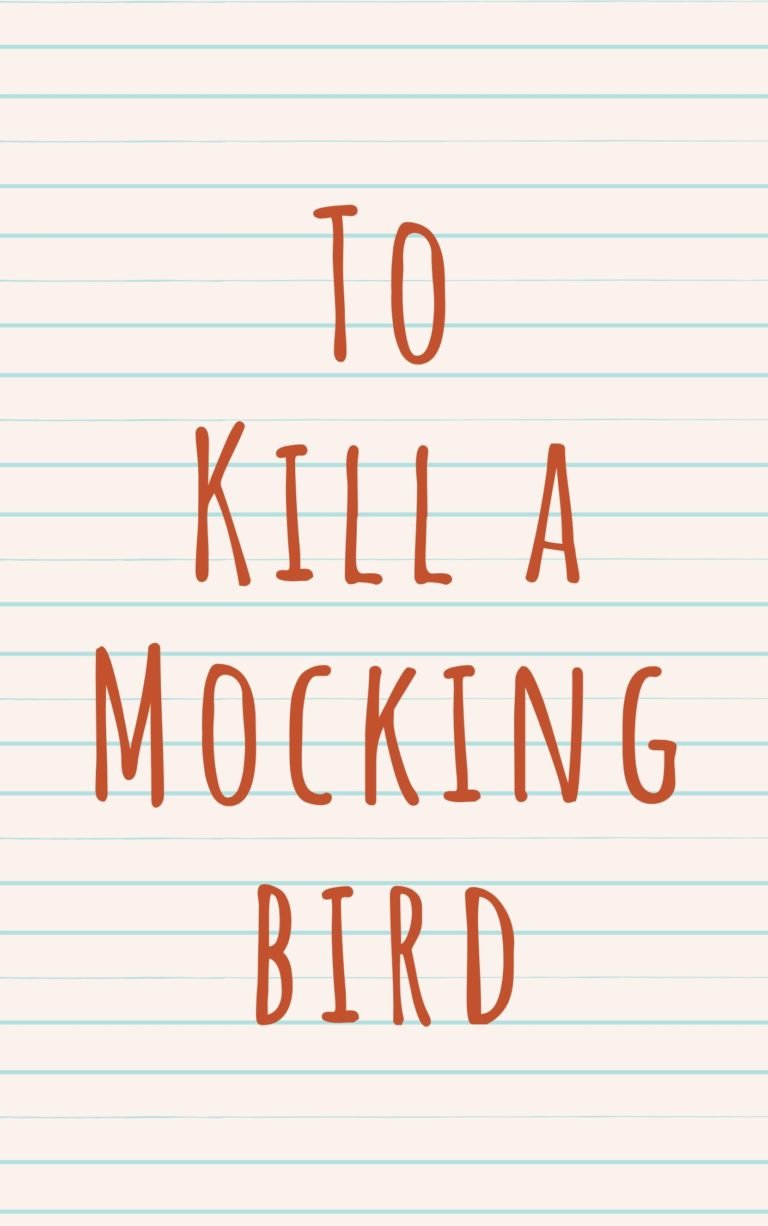Moby Dick or The Whale – Summary
Herman Melville
Rating: 7.0
“Responsive to the shaping forces of his age as only men of passionate imagination are, even Melville can hardly have been fully aware of how symbolical an American hero he had fashioned in Ahab.”
—F. O. Matthiessen
Moby Dick or the Whale (1851), written by Herman Melville, is considered an outstanding work of Romanticism and the American Renaissance. “Call me Ishmael” is one of world literature’s most famous opening sentences.
Contents
Call me Ishmael
Ishmael is a penniless Manhattanite who answers the ocean’s strong call and seeks out his first whaling voyage. After missing his connection to Nantucket to join a whaling ship there, he idles in New Bedford, Massachusetts, for the weekend. His search for cheap lodgings in the dreariest part of town brings him to The Spouter-Inn. Within, in the jaws of a whale-shaped bar, appears the old bartender, aptly named Jonah.
“I know not all that may be coming, but be it what it will, I’ll go to it laughing.”
― Moby-Dick or the Whale, Classic Fiction Novel by Herman Melville, Summary by Make Me Read
Strange Bedfellows
The inn is full, but Ishmael avoids returning to the bitter cold by agreeing to share a bed with aloof, brawny harpooner Queequeg. Ishmael is terrified of his comprehensively tattooed roommate who stays out late selling an embalmed human head. After spending the night fearing that Queequeg, a cannibal, will kill him, Ishmael wakes the next morning embraced in the hug of the slumbering harpooner.
“It is not down on any map; true places never are.”
― Moby-Dick or the Whale, Classic Fiction Novel by Herman Melville, Summary by Make Me Read
Ishmael keeps sailing tradition by attending the Whaleman’s Chapel before his voyage. Sailor-turned-chaplain Father Mapple delivers a seafarer’s sermon about Jonah’s disobedience toward God, the man’s punishment and repentance within the great whale, and, finally, his deliverance. Back at The Spouter-Inn, Ishmael warms to Queequeg’s authenticity. The two men bond while smoking a pipe together – so much so that Queequeg declares them “married.”
“The great floodgates of the wonder-world swung open, and in the wild conceits that swayed me to my purpose, two and two there floated into my inmost soul, endless processions of the whale, and midmost of them all, one grand hooded phantom, like a snow hill in the air.” (Ishmael)
― Moby-Dick or the Whale, Classic Fiction Novel by Herman Melville, Summary by Make Me Read
Queequeg reveals that on his native island, he was a king’s son. It was his plan to explore the West and bring its art and culture to his people. Yet when he arrived in Sag Harbor and Nantucket, he concluded that humankind was evil everywhere and thus chose to keep his native beliefs and habits. Like Ishmael, he’s an outcast.
The new friends committed to making their next seaward adventure together. On a schooner to Nantucket, their cross-cultural friendship draws curious stares and jeers. But the mood quickly changes when Queequeg steadies a dangerously untethered boom and even rescues a boy washed overboard.
“As for me, I am tormented with an everlasting itch for things remote. I love to sail forbidden seas, and land on barbarous coasts.”
― Moby-Dick or the Whale, Classic Fiction Novel by Herman Melville, Summary by Make Me Read
The Pequod
“There are certain queer times and occasions in this strange mixed affair we call life when a man takes this whole universe for a vast practical joke, though the wit thereof he dimly discerns, and more than suspects that the joke is at nobody’s expense but his own.”
― Moby-Dick or the Whale, Classic Fiction Novel by Herman Melville, Summary by Make Me Read
Though Queequeg is the seasoned whaler, the harpooner explains that his god, Yojo, wants Ishmael alone to pick the ship they’ll join. Ishmael finds three ships gathering crews for three-year voyages and chooses the Pequod – named for an extinct tribe of native people from Massachusetts – because of its nostalgic, weathered appearance and custom outfitting.
“I try all things, I achieve what I can.”
― Moby-Dick or the Whale, Classic Fiction Novel by Herman Melville, Summary by Make Me Read
On the ship, Ishmael meets the Pequod’s Quaker part-owners. After signing on to the crew, Ishmael regrets not investigating his new captain with the name of an evil biblical king: Ahab. One of the owners explains that Captain Ahab is an educated, good man who became melancholy after losing his leg to a monstrous whale, fulfilling a prophecy from his infancy.
“Ignorance is the parent of fear.”
― Moby-Dick or the Whale, Classic Fiction Novel by Herman Melville, Summary by Make Me Read
Later, as they return from signing Queequeg onto the Pequod’s crew, Ishmael and Queequeg meet a ragged sailor, Elijah, who delivers obscure hints and warnings about the well-being of their souls, Captain Ahab and their upcoming voyage. Days pass, and finally the ship summons its crew for departure.
In the early morning mist, Ishmael vaguely sees other sailors approaching the vessel – his fellow shipmates, he assumes. But Elijah reappears and rankles the two men by suggesting they won’t find the sailors on the boat. Indeed, when the two friends board, the ship is deserted except for a sleeping rigger. Captain Ahab is on board, they soon learn, but won’t leave his cabin.
“Talk not to me of blasphemy, man; I’d strike the sun if it insulted me.”
― Moby-Dick or the Whale, Classic Fiction Novel by Herman Melville, Summary by Make Me Read
All Hands on Deck
“…to the last I grapple with thee; from hell’s heart I stab at thee; for hate’s sake I spit my last breath at thee.”
― Moby-Dick or the Whale, Classic Fiction Novel by Herman Melville, Summary by Make Me Read
On Christmas Day, the ship heaves seaward, yet Ahab still hasn’t surfaced. Ishmael becomes acquainted with the ship’s officers: the prudent, dutiful first mate Starbuck; the carefree, jocular second mate Stubb; and the short, aggressive hunter Flask, the third mate. While Queequeg serves as Starbuck’s harpooner, the Native American Tashtego harpoons for Stubb, and the tall African Daggoo assists Flask.
“In looking at things spiritual, we are too much like oysters observing the sun through the water, and thinking that thick water the thinnest of air.”
― Moby-Dick or the Whale, Classic Fiction Novel by Herman Melville, Summary by Make Me Read
After days at sea, Captain Ahab shows himself. The grim, greying captain with a leg of carved whalebone bears a scar down his face and neck. In the passing days and nights, he lingers moodily on deck. One morning, he suddenly shouts for his men’s attention: They are in whale territory, he announces, and all the crew must keep watch for a white one.
“Human madness is oftentimes a cunning and most feline thing. When you think it fled, it may have but become transfigured into some still subtler form.”
― Moby-Dick or the Whale, Classic Fiction Novel by Herman Melville, Summary by Make Me Read
Moby Dick
On whaling waters, Captain Ahab abruptly orders the crew to gather. He offers a gold coin to the man who spots a white-headed whale with a wrinkled forehead, a crooked jaw and three holes in its tail. The three harpooners recognize the whale by description; it’s Moby Dick, they tell Ahab. The captain vows to pursue Moby Dick through the flames of hell to get his revenge. And that revenge, he emotionally tells the crew, is the true purpose of their voyage.
“Think not, is my eleventh commandment; and sleep when you can, is my twelfth.”
― Moby-Dick or the Whale, Classic Fiction Novel by Herman Melville, Summary by Make Me Read
Starbuck calls it blasphemy and madness to seek vengeance on an animal for behaving instinctually. But the captain returns that his suffering is a prison, and the white whale forms its walls. Whether the whale is evil or merely the agent of evil, it has become the target of Ahab’s hatred, he says. Starbuck relents, outmatched by Ahab’s madness. The captain hammers the coin to the mast and makes his crew take an oath to join his vengeful mission.
“It is the easiest thing in the world for a man to look as if he had a great secret in him.”
― Moby-Dick or the Whale, Classic Fiction Novel by Herman Melville, Summary by Make Me Read
Stowaways
Some time later, a member of the ship’s night crew hears a cough from the hold and claims there’s a mystery passenger aboard, yet unseen. Meanwhile, though unhinged, Ahab understands that revealing his ship’s strange, secret mission to pursue Moby Dick could leave him vulnerable to mutiny. So he engages the crew in their normal whaling occupation as he charts a course to intercept the white whale.
“See how elastic our prejudices grow when once love comes to bend them.”
― Moby-Dick or the Whale, Classic Fiction Novel by Herman Melville, Summary by Make Me Read
Soon, someone spots the first whale of the voyage – though not a white one. As the crew rush to their three respective boats, five unfamiliar men materialize, led by a Parsee harpooner, Fedallah. The five new men fill the spare boat with the captain. Ahab’s remaining crew and officers are agog, and Ishmael suddenly recalls the shadowy sailors he saw the morning of the ship’s departure.
“There is no quality in this world that is not what it is merely by contrast. Nothing exists in itself.”
― Moby-Dick or the Whale, Classic Fiction Novel by Herman Melville, Summary by Make Me Read
As the four whaling boats quietly wait for the whale and its pod to rise again from the deep, a thick mist descends. A squall approaches. However, Starbuck spots a rising hump, and commands Queequeg to throw his harpoon. The squall hits, the harpoon glances off the whale and Starbuck’s boat capsizes. Amid the squall, bailing is futile. Starbuck’s men can no longer see the Pequod or the other boats, so they light a lantern and grimly hope for rescue. At last, they see their ship and are saved. Ishmael’s initiation into whaling is complete.
“Our souls are like those orphans whose unwedded mothers die in bearing them: the secret of our paternity lies in their grave, and we must there to learn it.”
― Moby-Dick or the Whale, Classic Fiction Novel by Herman Melville, Summary by Make Me Read
Omens
One night, Fedallah spies a whale spout from the masthead. Strangely, no one sees a second spout. Just days later, the midnight spout appears again, but once more it disappears without trace. The spout appears to lure the ship onward, and some of the crew attribute it to Moby Dick. The ship sails in eerily pleasant weather until it enters stormy seas filled with strange, vague creatures. Sea ravens appear and begin landing on the ship, as if it’s deserted. And still the midnight spout haunts the crew.
“Give not thyself up, then, to fire, lest it inverts thee, deaden thee, as for the time it did me. There is a wisdom that is woe, but there is a woe that is madness.”
― Moby-Dick or the Whale, Classic Fiction Novel by Herman Melville, Summary by Make Me Read
Eventually, the Pequod nears another craft, the Goney – the sailing term for “albatross” – which is bleached white and streaked red with rust. As the ships pass, the Pequod’s crew shout out a question about the white whale, but the other ship’s crew can’t hear, and the Goney sails directly away.
However, another passing sperm-whaler, the Town Ho, soon brings a tale of Moby Dick to the Pequod. A cruel, jealous officer’s persecution had spurred one crew member of the Town Ho to plot murderous revenge – but the white whale beat the crewman to it. When the officer hunted the white whale, the animal seized him in its jaws and took him below.
“In landlessness alone resides the highest truth, shoreless, indefinite as God.”
― Moby-Dick or the Whale, Classic Fiction Novel by Herman Melville, Summary by Make Me Read
Toward Java, Daggoo thinks he spies the white whale, and the ship lowers its whaling boats, but the white creature is a giant squid – purportedly, the sperm whale’s only food. Some of the crew interpret this rare sight as another omen, but Queequeg says it means they’ll encounter a sperm whale soon.
“Top-heavy was the ship as a dinnerless student with all Aristotle in his head.”
― Moby-Dick or the Whale, Classic Fiction Novel by Herman Melville, Summary by Make Me Read
Deaths, Prophecies and Talismans
Indeed, a tranquil sperm whale soon surfaces before the ship, and the crew set to their boats. Tashtego harpoons the creature. Lance in hand, Stubb violently takes the whale’s life. They tow the corpse back to the ship, where Ahab, now aloof and unsatisfied, disappears to his cabin. Stubb celebrates his conquest by dining on whale steak. Alongside, in the ocean, sharks take to the corpse.
The next day, the crew behead and strip the blubber from the shark-bitten corpse. They hang the whale’s head from the boat and toss the remaining heft to the sea. Like the floating corpses of other whales, it will become an object of superstition for passing ships.
“In this world, shipmates, the sin that pays its way can travel freely and without a passport; whereas Virtue, if a pauper, is stopped at all frontiers.”
― Moby-Dick or the Whale, Classic Fiction Novel by Herman Melville, Summary by Make Me Read
Presently, the Pequod encounters another Nantucket whaling ship, the Jeroboam, which is beset by an epidemic. A crew member of that ship believes he is the archangel Gabriel and commands a following as a prophet. Gabriel warned his own ship against hunting Moby Dick, believing the whale is God incarnate. A Jeroboam officer ordered the harpooning of Moby Dick anyway – and the whale struck the chief mate, who then fell to his death in the sea.
“All evil, to crazy Ahab, were visibly personified and made practically assailable in Moby Dick. He piled upon the whale’s white hump the sum of all the general rage and hate felt by his whole race from Adam down.”
― Moby-Dick or the Whale, Classic Fiction Novel by Herman Melville, Summary by Make Me Read
At the Straits of Sunda, the Pequod rejoices in spotting seemingly thousands of sperm whales traveling together. But as the Pequod chases the whales, pirates give chase to the ship. The Pequod outspeeds its pursuers, and on Starbuck’s lowered boat, Queequeg harpoons a whale.
The stricken animal drags the boat into the frantic whale herd. The boat’s inhabitants survive and get their whale. Yet, despite the great herd and many wounded whales, the Pequod takes just one more among them. Meanwhile, the crew has come to view the gold coin that Ahab nailed to the mast as Moby Dick’s talisman.
“There is no folly of the beast of the earth which is not infinitely outdone by the madness of man.”
― Moby-Dick or the Whale, Classic Fiction Novel by Herman Melville, Summary by Make Me Read
The Pequod’s crew asks the next passing ship about the white whale, and the unfamiliar English captain holds up a prosthetic arm in response. He lost the limb while pursuing the white whale and, unlike Ahab, vows he’ll never seek revenge. Returning to the Pequod, Ahab splinters his ivory limb, refreshing his misery. He orders the ship’s carpenter to make a new one.
“To produce a mighty book, you must choose a mighty theme. No great and enduring volume can ever be written on the flea, though many there be who have tried it.”
― Moby-Dick or the Whale, Classic Fiction Novel by Herman Melville, Summary by Make Me Read
Confronting Death
Soon after, when Starbuck gently admonishes Captain Ahab for neglecting a leak among the whale oil casks, the stormy captain points a loaded musket at his first mate. Starbuck says the captain should be wary of himself, not his officers. Ahab, suddenly reflective, agrees. Queequeg searches deep in the ship for the leak’s source, and the work makes him feverishly ill. The harpooner thus commissions his own coffin but rallies back to health.
“The white whale swam before him as the monomaniac incarnation of all those malicious agencies which some deep men feel eating in them, till they are left living on with half a heart and half a lung.”
― Moby-Dick or the Whale, Classic Fiction Novel by Herman Melville, Summary by Make Me Read
The ship reaches the Pacific Ocean, and Ahab commands the ship’s blacksmith to weld him a new harpoon for Moby Dick. The Pequod passes a ship experiencing good luck, which for a day seems to rub off: Ahab and his crew take four whales. But soon after, Ahab dreams of hearses. Fadallah prophesizes that the captain can die only after seeing two hearses on the sea: one not made by “mortal hands,” and the other of American wood. Only hemp could kill the captain, adds the prophet.
Suddenly, a typhoon hits the Pequod. Lightning strikes the mastheads, generating St. Elmo’s fire [sparks of candlelike, bright plasma]. Ahab grasps the masts’ lightning rods to show his fearlessness and defiance. Starbuck cries out, drawing their attention to Ahab’s newly welded harpoon: It has caught fire amid his sea-wrecked whaling boat.
God is against their mission, Starbuck warns. The first mate begs to return home. Many of the crew support returning, but Ahab brandishes the burning harpoon, threatening any sailor who breaks his oath of hunting the white whale. Presently, the storm calms, and Starbuck approaches the captain’s cabin to report the weather. He finds the captain sleeping and contemplates whether to shoot Ahab to save the crew. However, he can’t bring himself to violence.
“There is, one knows not what sweet mystery about this sea, whose gently awful stirrings seem to speak of some hidden soul beneath…”
― Moby-Dick or the Whale, Classic Fiction Novel by Herman Melville, Summary by Make Me Read
Journey’s End
After passing an isle of shrieking seals that unsettles the crew, the ship enters Moby Dick’s territory. A crew member, possibly dozing, falls into the sea from his masthead lookout and drowns. The ship loses its life preserver trying to save him, so the crew decides that Queequeg’s unused coffin must be adapted as a replacement.
The next day, a ship called the Rachel reports that it saw Moby Dick just the day before and is still searching for a boat of men who’d harpooned the whale. The captain’s 12-year-old son is on the missing boat, and the father begs Ahab to help him search. But Ahab refuses.
“But in pursuit of those far mysteries we dream of, or in tormented chase of that demon phantom that, some time or other, swims before all human hearts; while chasing such over this round globe, they either lead us on in barren mazes or midway leave us whelmed.”
― Moby-Dick or the Whale, Classic Fiction Novel by Herman Melville, Summary by Make Me Read
While passing a ship giving a funeral for a whaleman lost to Moby Dick, the Pequod is “baptized” by the splash of the corpse entering the sea. Shortly after, Ahab regards his reflection in the ocean and for a moment grasps the madness of his mission. He directs Starbuck to stay alive by remaining on ship when Moby Dick appears. Starbuck nearly persuades Ahab to give up his doomed whale hunt by speaking of their respective families, but Ahab returns to his belief that the hunt is fated.
“Let faith oust fact; let fancy oust memory; I look deep down and do believe.”
― Moby-Dick or the Whale, Classic Fiction Novel by Herman Melville, Summary by Make Me Read
At dawn, the ship follows the powerful scent of a sperm whale, and Ahab soon spies Moby Dick. The captain has won the gold coin. The ship’s whaling boats lower, except for Starbuck’s. The white whale soon dives deep, and the boats await its surfacing. Sea birds flock to Ahab’s boat, and the man sees a white figure hurtling up from the depths. The whale strikes, then grips Ahab’s boat in its jaws. As Ahab rushes to respond, Moby Dick bites the boat in half, forcing the captain into the sea. Frenzied, the white whale circles the wreckage, with Ahab its epicenter. At the last minute, the Pequod intervenes, scaring off the whale.
“In his fiery eyes of scorn and triumph, you then saw Ahab in all his fatal pride.”
― Moby-Dick or the Whale, Classic Fiction Novel by Herman Melville, Summary by Make Me Read
The next day, as the ship’s crew think they see a far-off spout, Moby Dick bursts out of the water near the Pequod. The crew and Ahab race to their boats. The whale charges the three boats open-jawed. All three harpooners snare the whale, but its frenetic movements cause the lines to tangle. Stubb’s and Flask’s boats dash together.
The whale charges Ahab’s boat from below, sending it spinning above the waves. Victorious again, Moby Dick swims away, dragging the whalers’ lines with him. Ahab’s ivory limb is destroyed. The boats are lost – and so is Fedallah. Ahab muses that the Parsee was prophesized to die first but reappear before Ahab could die. Throughout the night, the crew prepare the spare boats.
“All my means are sane, my motive and my object mad.”
― Moby-Dick or the Whale, Classic Fiction Novel by Herman Melville, Summary by Make Me Read
On the third day, Ahab is again the first to spot Moby Dick. Before lowering his boat, he calls Starbuck near to shake hands, bringing the first mate to tears. On the water, sharks swarm Ahab’s boat and oars, but he pushes on. Starbuck, observing, has intimations of his own death. Suddenly the waters churn, and Moby Dick breaches and damages two boats. Tied to the whale’s back among the ropes and lances is the dead Fedallah. Ahab realizes that this is Fedallah’s prophesized return and the first hearse, but the captain has yet to see the second hearse that signals his death.
“Ahab leaned over the side and watched how his shadow in the water sank and sank to his gaze, the more and the more that he strove to pierce the profundity.”
― Moby-Dick or the Whale, Classic Fiction Novel by Herman Melville, Summary by Make Me Read
Moby Dick again swims away, and again Ahab pursues – now the only boat on the water. He nears close enough to the whale to drive in iron, but the line breaks. The white whale changes tactics and charges the Pequod itself. Ahab tries to follow, but his boat is damaged. The ship’s crew see the charging whale and experience their last wishes and regrets. The whale strikes a hole into the ship, and Ahab realizes the Pequod is the second hearse of Fedallah’s prophecy.
“Wonderfullest things are ever the unmentionable; deep memories yield no epitaphs”
― Moby-Dick or the Whale, Classic Fiction Novel by Herman Melville, Summary by Make Me Read
Seeing that he won’t have the dignity of going down with his ship, the captain darts his harpoon at the whale. But the quickly tightening line – the hemp from the prophecy – wraps around Ahab’s neck and springs him from the boat. Nearby, the Pequod sinks rapidly, the harpooners still in the mastheads. As Tashtego goes under, he continues to hammer Ahab’s red flag to the mainmast, securing a live hawk that pecks at the flag.
Only Ishmael, the accidental bowsman of Ahab’s boat, survives the suction of the sinking ship. When its coffin life-preserver pops back to the surface, he finds refuge there. Days later, the Rachel rescues him, enabling him to share the grim tale.
“Better sleep with a sober cannibal than a drunken Christian.”
― Moby-Dick or the Whale, Classic Fiction Novel by Herman Melville, Summary by Make Me Read
Check out Make Me Read for summary of the best business books.
Don’t forget to check us out of Facebook, LinkedIn, Instagram, Twitter, and Medium.






